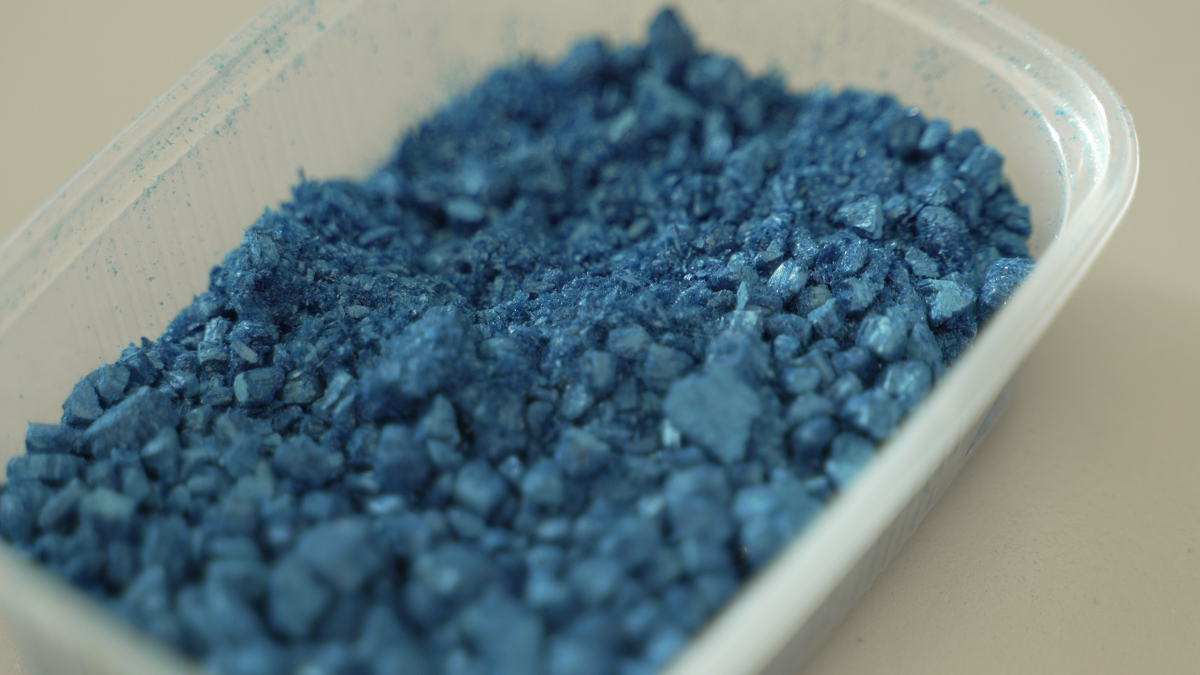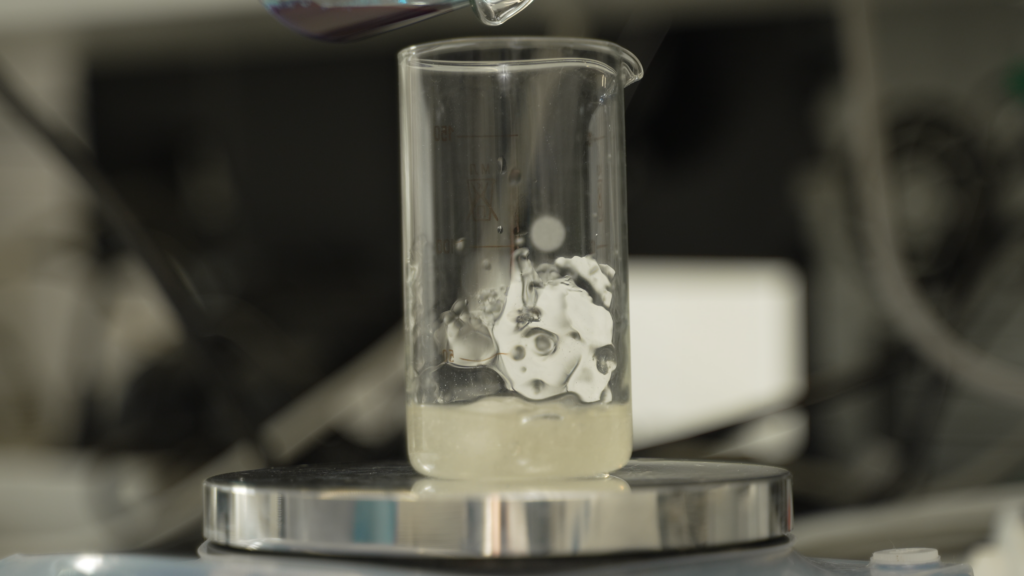LSMU Researchers Create Skin Cancer Prevention Gel in Response to Environmental Challenge

Last autumn, a team of Lithuanian engineers unveiled a pioneering floating device designed to gather cyanobacteria biomass in the Kaunas Lagoon. The device not only addresses the issue of cyanobacteria build-up in aquatic environments but also serves as a catalyst for novel discoveries. A research team from the LSMU Faculty of Pharmacy is in the process of creating a phycocyanin gel, aimed at mitigating the risk of skin cancer development.
Research Inspired by the Quest for Sustainability

After harvesting the cyanobacteria build-up with a specialised device, researchers Daiva Galinyte and Prof. Nijole Savickiene had an idea to study the c-phycocyanin pigment, which is prevalent in cyanobacteria.
According to the authors of the idea, the initial investigations into c-phycocyanin revealed it to possess remarkable skin-beneficial effects. Following a comprehensive review of external mechanisms of action of c-phycocyanin on the skin, the team became persuaded that it was a promising natural substance with anti-cancer, antioxidant, anti-inflammatory, and skin restorative properties.
Therefore, by selectively harvesting excess cyanobacteria from aquatic environments, one could purposefully utilise it to enhance the health of aquatic ecosystems.
Aiding in the Prevention of Skin Cancer Development
According to the data by the World Health Organisation, an estimated 2 to 3 million cases of non-melanoma skin cancer, as well as 132,000 instances of melanoma skin cancer, are reported globally each year. Remarkably, 1 in 3 cancer diagnoses pertains to skin cancer.
The research team at LSMU is optimistic that the gel they are in the midst of developing could inhibit the emergence of precancerous skin lesions and the subsequent development of skin cancer itself. According to the creators of the gel, the current market is awash with cosmetic products featuring botanical elements known for their antioxidant, anti-melanogenic, and anti-inflammatory properties. However, these products frequently lack empirical validation of their efficacy and often contain an abundance of synthetic additives, which can have detrimental effects both on the skin and the surrounding environment.
Natural Solution to the Problem
Unlike conventional products on the market that feature UV filters and plant extracts, the phycocyanin gel deals with multiple issues.
First, the gel is anticipated to mitigate the likelihood of precancerous skin lesions and skin cancer development. Second, it is expected to counteract the adverse impacts of UV radiation and additional detrimental external factors when used as a supplementary measure. Third, the product also has a restorative effect on the skin. Finally, like other products on the market, this gel will be convenient to use daily.
The researchers also draw attention to the anticipated registered product form. It is expected that phycocyanin gel will be registered as a medical product with scientific evidence-based proof of efficacy, which would give the consumer additional confidence in the product.


This work has been conducted under the project titled “Development of Knowledge Commercialisation and Technology Transfer at Lithuanian University of Health Sciences (LSMU-TTO2)” (project No. 13.1.1-CPVA-K-703-04-0010).
